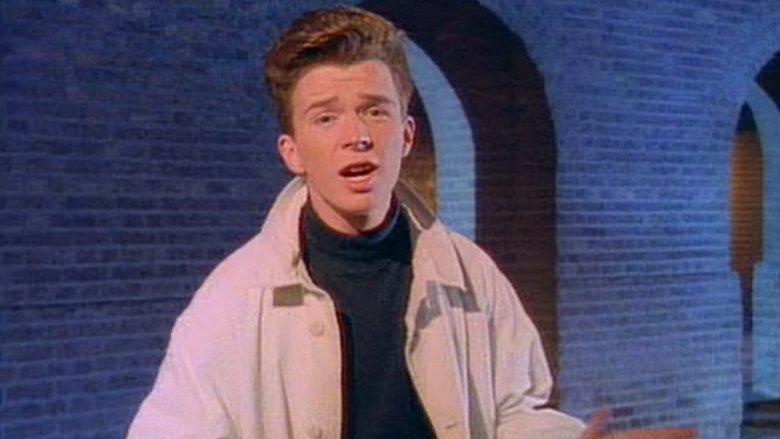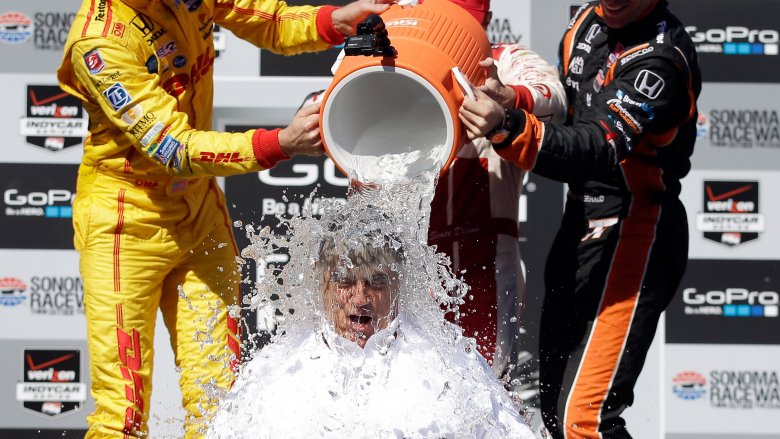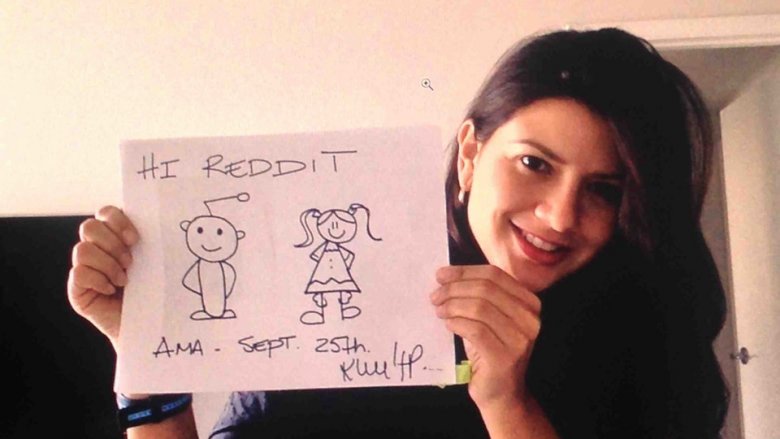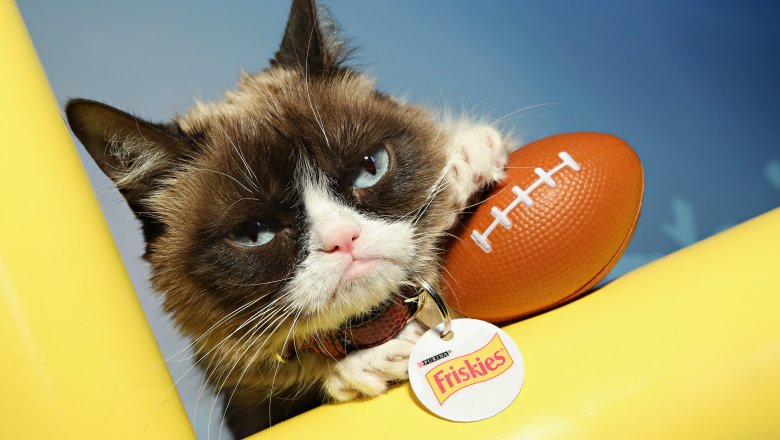Memes That Changed People's Lives For The Better
On the surface, internet memes seem like they're all fun and games, but when somebody's badly timed photograph, profane tweet, awkward video, or MS Paint masterpiece gets blasted over social media, the impact can inadvertently ruin job interviews for the next decade. The internet is a brutal place, and no bit of silliness ever goes unpunished. It's no wonder that undergoing the radical transformation from a regular person into a digital meme has destroyed many lives.
The results of internet fame aren't always so terrible, though. Every once in a blue moon, surprisingly enough, memes do some real good in the world. Sure, becoming a meme will probably change your life in many ways, but you're definitely not going to complain if those changes involve earning enough money to pay off your mortgage, snagging more hot dates, raising funds for charity, or saving a loved one from a serious medical condition.
The Success Kid saved his dad
Everyone wishes they were the Success Kid. With that proud expression, that beachy background, and that chubby baby fist clenching onto sand like it's made of pure gold, the Success Kid spent years as this generation's ultimate symbol of victory, both small and large. In real life, though, Time says he was just a regular boy named Sammy Griner, who eventually grew up into a nice, caring elementary schooler.
Meanwhile, Sammy's dad Justin was fighting for life, undergoing hours of dialysis treatment every day for six years, according to ABC News. When Justin's health condition worsened, requiring a kidney transplant the Griners couldn't afford, the family threw a big Hail Mary pass: They launched a GoFundMe campaign, hoping to harness the popularity of the Success Kid meme and turn it into real cash. To their amazement, people pitched in like crazy, raising over 100,000 real dollars, resulting in a successful operation for Justin. Basically, the most famous baby photo of the 2000s transformed from a funny meme into a lifesaving antidote. Now that's success.
The mugshot that made Hot Felon a star
Back in 2014, a 30-year-old forklift operator named Jeremy Meeks got searched by the cops, found possessing both marijuana and an unregistered pistol, and was arrested, according to The Cut. Then came a plot twist that could have only happened in the 21st century: Meeks' mugshot got put online, became a meme called "Hot Felon," and he suddenly had legions of fans fawning over him.
While bragging about the benefits of being "really, really, really, ridiculously good-looking" might sound like a Zoolander punchline, things have turned out pretty swell for Meeks since then. By the time he was released in 2016, ABC says he had a fancy agent, a successful high-end modeling career, a new relationship with Topshop heiress Chloe Green, and was even getting buzz from Hollywood. On the domestic side, in 2018 the couple announced via Instagram that they'd had their first child together, Jayden Meeks-Green. One thing is for sure, Hot Felon has had a crazy last few years, and it seems like big things are still ahead.
The biggest Rickrolling fan alive
Rick Astley's never gonna give you up, no matter how many times you watch that cheesy '80s video. Though Astley's song was a #1 hit back in its day, it had largely faded from pop culture until the weird wide web decided to start rickrolling everybody so excessively that, even now, paranoid people hover over links before clicking them. But while rickrolling was a genuine internet phenomenon, how did it impact the main man himself?
Back in the early 2000s, you would've been hard-pressed to find any teenagers who knew Rick Astley's name. But once rickrolling took off, according to the BBC, Astley's legions of adoring new fans got the 50-year-old musician shortlisted for the 2008 MTV award of "Best Act Ever." On the financial side, the silly urban legend that Astley only made "12 bucks" from all that rickrolling craziness is demonstrably false. In 2013, Astley told Metro he'd actually made quite a bit of money from it. He further elaborated on Reddit that while the bajillion YouTube hits didn't line his pockets, it did earn him some sweet deals like commercials and the time that he rickrolled the Macy's Thanksgiving Day Parade.
The best part of all this? Though Astley had spent the past few decades in semi-retirement, the 2010s have seen him make a big comeback, according to the Independent.
Those ice buckets went to good use
Getting a bucket of freezing water dumped on you never felt as good as it did in the summer of 2014, when the Ice Bucket Challenge led to wacky videos of you, your friends, your cousins, Chris Pratt, Amy Schumer, and LeBron James getting all cold and soggy.
Though looking back on it now is a nostalgic experience, what's actually important to remember is that the ice bucket challenge was all about increasing awareness for ALS — amyotrophic lateral sclerosis, often called Lou Gehrig's disease — with the goal being to raise funds for better ALS research. While some criticized the particulars of the meme and questioned if it would actually work, Time reported a year later that the challenge was a smashing success for charity, earning the ALS Association over $115 million. To demonstrate good faith, the ALS Association was very transparent about how it spent this money, allocating two-thirds of it to research, 20 percent to patient services, and 11 percent to education, fundraising, and processing fees. As far as charitable events go, this one was a slam dunk, albeit a very frigid, wet one.
The man with the golden voice turned his life around
Back in 2011, the internet was amazed by the voice of Ted Williams, a homeless man who was filmed busking for tips by speaking in a perfect, radio announcer baritone. Details soon started leaking about the unique character dubbed "the man with the golden voice," who according to K99 was a former U.S. Army veteran and family man until succumbing to drug and alcohol addiction. Those dark days swallowed his income, home, and loved ones, at one point even landing him in prison. By the time the famous video emerged, though, Williams was two years sober and ready to take a new direction in life.
Before long, lots of people wanted to help the guy out, particularly after he started appearing on radio interviews and daytime talk shows. According to NPR, Williams used his newfound fame to secure new voiceover gigs, then went to rehab, published a memoir, and reunited with his mother, whom he hadn't seen in two decades. At first, Williams struggled to adjust to the domestic normalcy of his new life, but he kept going at it, and in 2018 he finally got his own radio show in Columbus. These days, the Golden Voice Show airs regularly on WVKO, marking his first regular employment since 1993.
Good Luck Brian
No matter how bad your lot in life might be, you're still better off than Bad Luck Brian, the nerdy kid who seems perpetually trapped in a Nietzschean cycle of depressing scenarios. The actual boy in the photograph, according to the Washington Post, is Kyle Craven, who was a 22-year-old college student by the time his embarrassing old class photo blew up on the internet. Kyle didn't post it, for the record. The blame for that one falls on his childhood friend.
While Bad Luck Brian is usually portrayed as a good-hearted, naive kid doomed to eternal failure, Kyle Craven was actually a school prankster, called "Crazy Kyle," who purposely staged the famous photo to look as goofy as possible. That's why he never took offense to all the online mockery, and it's also why he was smart enough to turn the meme into a self-marketing vehicle: going to conventions, selling merchandise, partaking in ad campaigns for major companies like Volkswagen, and taking photographs with fans. Since wrapping up college, Craven has worked as a project manager at a construction company, but he still manages to make a tidy supplemental income from his Bad Luck Brian fame. So while Brian might've never been able to catch a break, Kyle has done pretty well for himself.
From Numa Numa to YouTube champion
Back in 2004, when the internet was more like the Wild West than the somewhat structured playground it is today, a guy named Gary Brolsma posted a video of himself to Newgrounds, which showed him excitedly dancing to a Romanian-language pop song by a band named O-Zone. Though the so-called "Numa Numa Dance" was created as a joke for his friends, and Brolsma actually expected it to get deleted, the clip unexpectedly blew up the web like a fireworks show. In two years, it had racked up over 15 million views, was featured all over mainstream media, and even led to increased sales for O-Zone's original album.
Brolsma wasn't interested in being the butt of anybody's joke, so instead of running away from his newfound viral fame, he owned it. He funneled his success into a YouTube channel that Business Insider estimated could have earned thousands of dollars and even got to reprise his performance in a Geico commercial. Now that's living.
Henri's still morose, but his owner is happy
While you can't actually hear the internal musings of your feline "friend," it's quite probable that their thoughts resemble the dark, existentialist angst of Henri, the black French cat who struggles to manage his depression amid his privileged life. According to the Los Angeles Times, these grainy black and white videos are the product of William Braden, who made his lovable furry friend Henry — yes, with a Y — into an internet star, earning a People's Choice Award at the Internet Cat Video Film Festival, and snagging so much money from Henri collectibles that at one point he made the cat meme business into his full-time job.
If Henri were human, he would certainly write a book, in order to sort out his dark and philosophical concerns. So, it only seems right that his human owner did score a book deal, releasing Henri, le Chat Noir: The Existential Musings of an Angst-Filled Cat in 2013.
The dental agony was only temporary
David DeVore felt pretty weirded out when he was recovering from dental surgery, but things only got weirder when his parents posted his ramblings up on YouTube, figuring it would entertain their friends and family. Because this is the internet age, the "David After Dentist" video went ridiculously viral, according to Business Insider, collecting 3 million views in just four days. Soon enough, it spiraled into an $150 million marketing juggernaut so huge that David's father was able to quit his real estate job.
Since then, the DeVores have donated thousands of dollars to their dentist, their church, and the charity Operation Smile, as well as using the profits to fund David's education at a private school. In 2016, New Statesman caught up with the now-teenage David. When asked, David expressed appreciation for the video as being a huge part of his life, but did say that he'd someday like to be known for more accomplished things than his drugged dental ramblings, which is certainly understandable.
Not so sheltered, after all
The premise of the "Sheltered College Freshman" meme is problematic to start with: aside from the various sexist tropes the meme promoted, there aren't a lot of college freshman who are still "sheltered" by the time they've rolled into a few keg parties. Nonetheless, when a professional Colombian model named Kerin Portillo figured out that a stock photograph featuring her had gone viral, she found the calls started coming in. In 2014, Portillo went on Reddit to take questions. So how did her internet fame impact her career? Portillo said it had made it easier for her to pick up more modeling gigs, and that it helped people realize her smile sells well in stock photos.
She wasn't exaggerating. If you keep your eyes open, you might spot Portillo's face on billboards, magazines, and advertisements all over the place. On her Twitter she reports that she's now living in Miami and loving life.
Grumpy Cat didn't make her owner grumpy
Judging by Grumpy Cat's frown, you'd think there was nowhere for this furious feline's mood to go but up. However, while Grumpy Cat's expression might resemble the way you look when you have to get up at 5 a.m. for work and the coffeemaker breaks, Mental Floss says the cat behind the meme — whose real name is Tardar Sauce — was a frisky, playful little gal with a bright attitude.
Tardar Sauce made some big bucks, and since cats aren't allowed to have bank accounts, that resulted in serious winnings for her owner, Tabatha Bundesen. Back in 2012, Bundesen was living on tips as a waitress in Arizona, according to Business Insider, when her brother took a photo of the saucy one and shared it online. That grumpy face went so insanely viral that Bundesen was able to retire from serving tables within just a few days. Since then, the sullen feline has grown from a popular meme to a genuine multimedia phenomenon, with Grumpy Cat now appearing on numerous T-shirts, pet toys, book deals, and coffee mugs, not to mention being the official mascot of Friskies pet food, and the star of the TV program Grumpy Cat's Worst Christmas Ever. Whether Tardar Sauce ever became aware of her own popularity is another question, but she probably appreciated all the high-quality cat food she ate in her lifetime.
Sadly, Tardar Sauce has passed on from this world. Grumpy Cat died of complications from a urinary tract infection on May 14, 2019. May she frown in peace.







